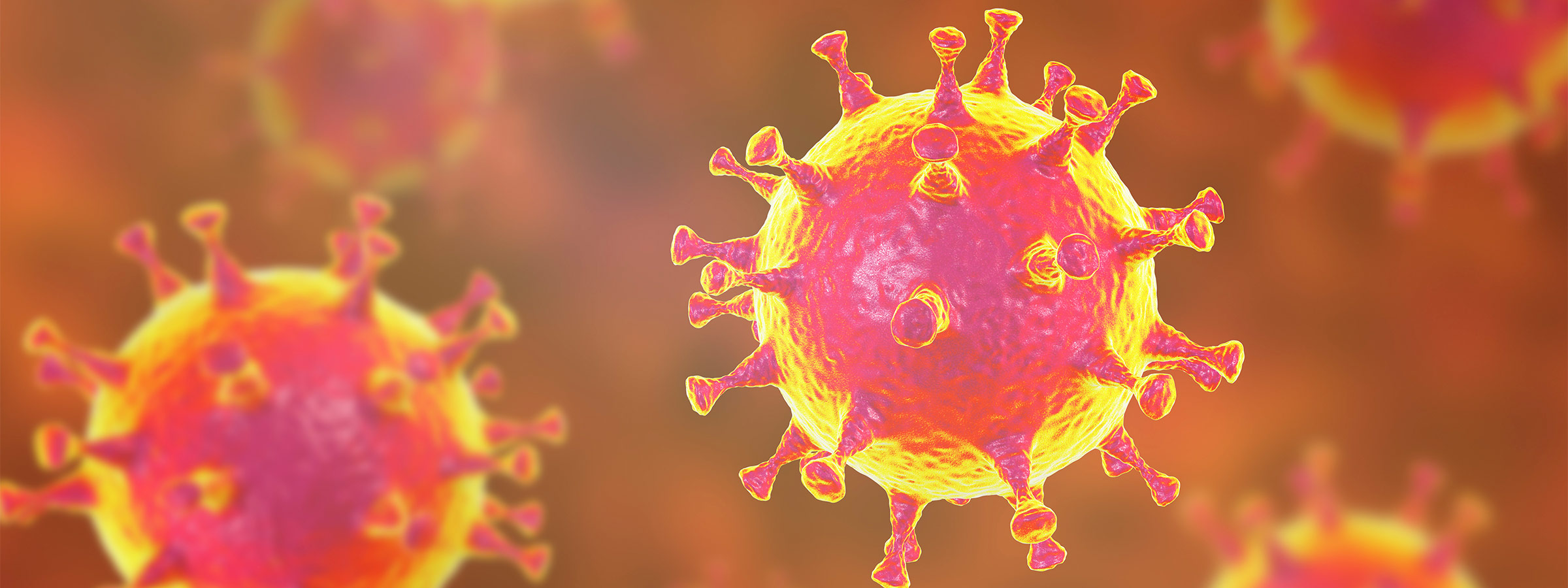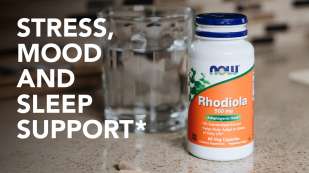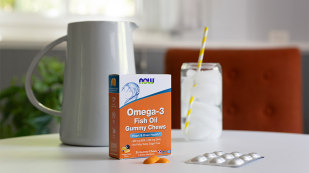Coronavirus Q & A with Dr. Rick Sharpee

Dr. Rick Sharpee is Director of Science and Nutrition at NOW Health Group. He is responsible for clinical testing for safety and effectiveness, international registrations and technical support for dietary supplement products.
He received his B.S. degree in Bacteriology from the University of Wisconsin, his M.S. in Microbiology and Immunology from Miami University. And his Ph.D. in Microbiology (Virology) from University of Nebraska. He has over 30 years of broad-based experience in infectious disease research, innovative “industry-first” product development, GMP manufacturing and technical market support in the dietary supplement, animal health and pharmaceutical industries. Dr. Sharpee was named a “Top 100 innovator” for the development of the world’s first vaccine for feline leukemia. He is a co-discoverer of rotavirus and the discoverer of coronavirus in cattle.
Questions for Dr. Sharpee:
• What is your background with the coronavirus?
• Is the coronavirus more dangerous than the regular flu?
• Who is at more risk for contracting it?
• How can someone reduce their risk of exposure to the virus?
• How is the disease diagnosed?
• Is there anything that can be taken to prevent or cure the coronavirus?
• How is the dietary supplement industry being affected by this and what, if anything, can we do to safeguard our health?
For more detailed responses and additional insights from Dr. Sharpee, watch this webinar:
Q: What is your background with the coronavirus?
A: I worked on the discovery and characterization of the bovine (cattle) coronavirus as part of the requirements for creating original research for the Ph.D. degree in Microbiology at the Univ. of Nebraska. About this same time I published an article in “Lancet” (a premier medical journal) predicting coronaviruses in humans and horses and further proposed that corona viruses could be classified into 2 subgroups based on acid sensitizing for the respiratory form and acid resistance for the enteric form.
Q: Is the coronavirus more dangerous than the regular flu?
A: Coronavirus in humans is a severe upper respiratory tract disease similar to the flu (Influenza) but has been shown to be more invasive and deadly in humans due to its ability to rapidly multiply and spread in lung tissue destroying the cells that line the lungs thereby destroying the ability of the lung to absorb oxygen. The patient becomes starved for oxygen and essentially dies from asphyxiation. It’s also important to note that this coronavirus (COVID-19) is not the same virus that is responsible for SARS (Severe Acute Respiratory Syndrome) that first appeared in the early 2000’s
The outbreak is believed to have begun in a seafood and poultry market in Wuhan, a city of 11 million people in central China. Scientists believe the virus is readily transmitted from person to person. As we have seen, the initial epidemic of coronavirus became a pandemic with world-wide distribution.
Q: Who is at more risk for contracting it?
A: Initially it appeared the elderly were the most susceptible to the virus, but new information is demonstrating that the virus is capable of infecting people of all ages. Thus anyone exposed to someone who is demonstrating symptoms of the disease which are similar to the symptoms of cold and flu and pneumonia is at risk of becoming infected. However, anyone who has a compromised immune system, the very young and very old are especially at risk.
Symptoms are similar to cold and flu making clinical diagnosis difficult. These include: fever, cough, runny nose, sinus congestion and nasal discharge, sore throat.
Q: How can someone reduce their risk of exposure to the virus?
A: Currently the best way to prevent infection is to avoid being exposed to this virus. And, the CDC always recommends everyday preventive actions to help prevent the spread of respiratory viruses, which include the following:
- Avoid close contact with people who are sick.
- Avoid touching your eyes, nose, and mouth with unwashed hands.
- Stay home when you are sick.
- Cover your cough or sneeze with a tissue, then throw the tissue in the trash.
- Clean and disinfect frequently touched objects and surfaces using a regular household cleaning spray or wipe.
- Follow CDC’s recommendations for using a facemask.
- CDC now recommends that people who are well wear a facemask to protect themselves and others from spreading respiratory viruses.
- Facemasks should be used by people who show symptoms in order to protect others from the risk of getting infected. The use of facemasks is also crucial for health workers and people who are taking care of someone in close settings (at home or in a health care facility).
- Wash your hands often with soap and water for at least 20 seconds, especially after going to the bathroom; before eating; and after blowing your nose, coughing, or sneezing.
- If soap and water are not readily available, use an alcohol-based hand sanitizer with at least 60% alcohol. Always wash hands with soap and water if hands are visibly dirty.
- Practice social distancing (maintain 6 feet separation between people).
- For information about handwashing, see CDC’s Handwashing website.
- For information specific to healthcare, see CDC’s Hand Hygiene in Healthcare Settings.
- These are everyday habits that can help prevent the spread of several viruses. CDC does have specific guidance for travelers.
- The most important and practical protocol to follow is always wear a facemask and practice social distancing.
Q: How is the disease diagnosed?
A: CDC has updated its testing requirements to include; a.) a Nasal Swab Antigen Test to detect the presence of the virus, and b.) a Polymerase Chain Reaction (PCR) confirmatory test.
- Nasal Swab Antigen tests are used to detect currently infected individuals. This test detects certain proteins that are part of the virus. Using a nasal or throat swab to get a fluid sample, antigen tests can produce results in minutes.
- Rapid antigen tests perform best when the person is tested in the early stages of infection when viral load is generally highest.
- The Enzyme-linked immunosorbent Assay (ELISA) antigen test detects the presence of virus in nasal secretions.
- PCR antigen test is highly specific molecular and more sensitive to low levels of virus than the ELISA and is used as a confirmatory test.
- Blood antibody test is used to determine if a person has already been exposed to an infection by detecting antibodies in their blood or serum.
- An antibody test is done by an ELISA.
The ELISA is a highly specific confirmatory test used to measure virus neutralizing antibodies. This method is considered the gold standard for detection of specific antibodies in serum samples. The antibody testing checks for a type of antibody called immunoglobulin G (IgG). Your body typically produces IgG antibodies as part of the immune response to the virus. It can take at least two weeks after exposure to develop antibodies.
- An antibody test is done by an ELISA.
Q: Is there anything that can be taken to prevent or cure the coronavirus?
A: At this time, there is no specific antiviral treatment recommended for this virus infection. People infected should receive supportive care to help relieve symptoms. For severe cases, treatment should include care to support vital organ functions.
People who think they may have been exposed should contact their healthcare provider immediately.
Q: You stated earlier that there is currently no vaccine or cure for coronavirus. Tell us how the dietary supplement industry is being affected by this and what, if anything, we can do to safeguard our health.
A: Supplements are not drugs so supplement companies should not be making any claims that their product can cure or prevent any disease, including the coronavirus. Supplements are meant to complement a healthy diet and lifestyle, and can support overall health and wellness and help to fill in for deficiencies in nutrition.
That being said, the pandemic has served as a reminder to focus more on the health and wellness of the body by use of immune supporting* dietary supplements like: Vitamin D, Vitamin C, Elderberry, Resveratrol, Astragalus, Probiotics, Zinc, Copper, and Vitamin A.
In a recent Instagram Live interview with Jennifer Garner, Dr. Anthony Fauci, Director of the National Institute of Allergy and Infectious Diseases, highlighted the benefits of supplementing with vitamins C and D. “If you’re deficient in vitamin D, that does have an impact on your susceptibility to infection. I would not mind recommending, and I do it myself, taking vitamin D supplements,” he said. “The other vitamin that people take is vitamin C because it’s a good antioxidant, so if people want to take a gram or so of vitamin C, that would be fine.”
*These statements have not been evaluated by the Food and Drug Administration. This product is not intended to diagnose, treat, cure or prevent any disease.











